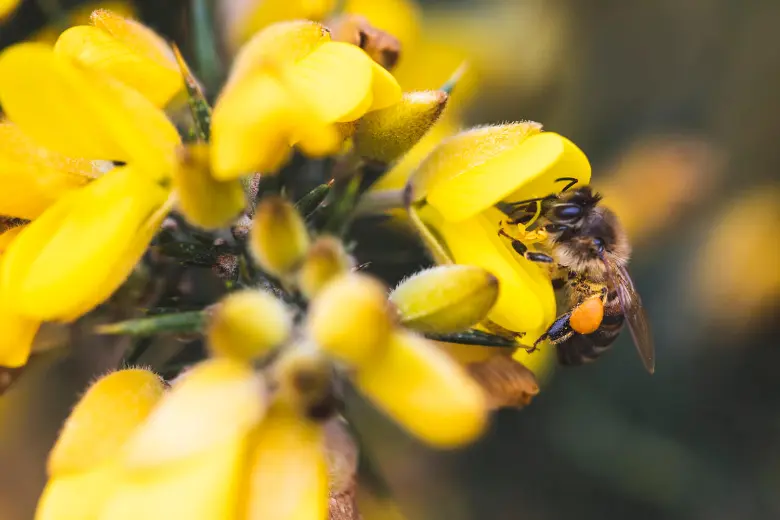
Guy Singh-Watson started farming organically at Riverford back in 1987, largely because (having suffered headaches and nausea after spraying pesticides as a teenager) it “just felt right”. We've stayed true to organic ever since - and over the years, a lot of what felt right has turned out to be right for very tangible, logical and scientific reasons.
Agriculture is necessary for food production. We can't survive without it, but we can strive to tread on the land as lightly as possible. Organic food is food as it should be: with no artificial nasties, the highest standards of animal welfare, and full traceability from farm to fork. We reckon it's the best show in town.
What is organic food?
Organic food is the product of organic farming; put simply, a system of managing our land and livestock that works with nature rather than against it.
Organic always means…
- No artificial pesticides or fertilisers
- Exceptional standards of animal welfare (better than free range!)
- No genetically modified (GM) ingredients or animal feeds
- No routine use of antibiotics
- Free from artificial preservatives and colours
Just because it's more natural doesn't mean that organic farming isn't rigorously controlled. For our food to be labelled as organic, we must meet strict rules set out in law, and be inspected and certified by the Soil Association.

No artificial pesticides
Almost 300 synthetic pesticides can be routinely used on non-organic farms. Organic farmers are permitted just 15 pesticides, all derived from natural ingredients such as garlic and clove oil, and only used in very restricted circumstances. Around 90% of Soil Association-certified organic farmers use no pesticides at all.
Instead, we use naturally occurring ecological phenomena to our advantage; for example, encouraging predatory bugs that will eat the aphids off our crops. Sometimes it's as simple as planting veg a little further apart so pests or disease can't spread!

Outstanding animal welfare
Organic is the gold stamp of animal welfare - the highest standards around. Paying that little bit extra allows organic farmers to above and beyond any other system, giving the animals as natural and happy a life as possible.
Organic animals…
- Are truly free to roam, with continuous daytime access to clean organic pasture
- Have more space than any other system, indoors and out
- Enjoy a rich natural diet
- Live in smaller groups, reducing stress
- Must not routinely be given antibiotics
- Are safe from mutilation. Organic hens are never de-beaked - common even in free-range systems - and organic pigs never have their teeth or tails cut.

Protecting our planet
Agriculture takes a toll on our planet. Thanks to nitrogen-based artificial fertilisers, farms are responsible for around 50% of all nitrous oxide emissions - and the world's fertile soil (a finite natural resource) is being severely degraded at a rate of 24 billion tonnes a year.
Instead of artificial fertilisers, organic farms use crop rotation and companion planting. Each field is cycled through various crops over time. The sequences and combinations of plants are designed to keep the soil naturally fertile, well structured, and free of disease.
The soil on organic farms has been found to contain at least 20% more organic matter. If organic farming was common practice in the UK, we could offset at least 23% of agriculture's current greenhouse gas emissions.

Havens for wildlife
Many artificial pesticides don't just kill the target pest; 75% of Britain's butterfly species have declined in the past 10 years, and eight of our 25 bumblebee species are threatened, with two already extinct.
Organic farming supports biodiversity by providing lots of green spaces. There is 50% more wildlife on organic farms, made up of 30% more species! It's mutually beneficial: the green borders and thriving hedgerows around our fields provide a habitat for predators like hoverfly and ladybird larvae, who repay the favour by munching aphids off our crops.

Nutritionally different
Some ground-breaking research in recent years has found that organic food is nutritionally different to conventionally farmed food.
- Because plants must produce them to combat pests, organic crops contain up to 68% more antioxidants. Switching to organic fruit and veg could give the same benefits as adding one or two portions of the recommended '5 a day'.
- Because the animals get lots of exercise, organic meat has less saturated fat.
- Organic milk and meat contain 50% more beneficial omega-3 fatty acids. These are increased when animals graze on clover.
- There is 40% more CLA (conjugated linoleic acid) in organic milk and dairy, as well as higher levels of iron, Vitamin E and carotenoids.
Because organic food isn't allowed to contain any artificial preservatives, it needs to get onto shelves quicker; our food is delivered to your door truly fresh from the fields.

Riverford & organic
The principles behind organic farming have become woven into Riverford's ethos. Everything we grow, make and sell (except wild fish!) is 100% organic - and we also try to go above and beyond the Soil Association's regulations wherever we can.
To learn more about organic farming, visit soilassociation.org





